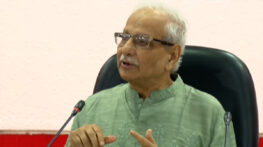
On 7 September 2017, newly arrived Rohingya refugees walk ashore at Shamlapur beach in Cox's Bazar district, Chittagong Division in Bangladesh, after traveling for 5 hours in a boat across the open waters of the Bay of Bengal. By 5 September 2017, more than 146,000 Rohingya refugees fled across the border from Rakhine State, Myanmar, into Cox's Bazar district, Chittagong Division in Bangladesh since 25 August. As many as 80 per cent of the new arrivals are women and children. More than 70 000 children need urgent humanitarian assistance. More than 100,000 of the newly arrived refugees are currently residing in makeshift settlements and official refugee camps that are extremely overcrowded while 10,000 newly arrived refugees are in host communities. In addition, 33,000 arrivals are in new spontaneous sites, which are quickly expanding. While some refugees are making their own shelters, the majority of people are staying in the open, suffering from exhaustion, sickness and hunger. Cox’s Bazar district of Bangladesh is one of the most vulnerable districts, not only for its poor performance in child related indicators but also for its vulnerability to natural hazards. Most people walked 50 or 60 kilometers for up to six days and are in dire need of food, water and protection. Many children are suffering from cold fever as they are drenched in rain and lack additional clothes. Children and adolescents, especially girls, are vulnerable to trafficking as different child trafficking groups are active in the region. Many more children in need of support and protection remain in the areas of northern Rakhine State that have been wracked by violence. In Bangladesh, UNICEF is scaling up its response to provide refugee children with protection, nutrition, health, water and sanitation support. With the recent influx of refugees, demand has increased and UNICEF is working to mobilize more support and strengthen its existing activities. For recreational and psychosocial support to the newly arrived Rohingya children, 33 mobile Child Friendly Spaces (CFSs) are now operational with 100 recreational kits, Education in Emergency (EiE) kits and trained teachers. These mobile Child Friendly Spaces have already provided psychosocial support to 226 newly arrived Rohingya children. Separated and unaccompanied children are also being identified through Child Friendly Spaces and community outreach. Over 100 adolescent clubs are operational in host and makeshift settlements to provide life-skills education through outreach activities. In Myanmar, UNICEF does not at present have access to the affected areas in northern Rakhine State including 28,000 children who were previously provided psychosocial care or the more than 4,000 children who were treated for malnutrition in Buthidaung and Maungdaw. UNICEF’s clean water and sanitation work has been suspended, as have school repairs that were under way.
দুই রোহিঙ্গা নারীর শরীরে এইচআইভি ভাইরাসের উপস্থিতি পেয়েছেন চিকিৎসকরা। তাদেরকে চিকিৎসার জন্য চট্টগ্রাম মেডিকেল কলেজ হাসপাতালে ভর্তি করা হয়েছে।
কক্সবাজারের উখিয়ার শরণার্থী শিবির থেকে রোববার রাতে তাদের পাঠানো হয় বলে জানায় পুলিশ। আক্রান্ত নারীদের একজনের বয়স ৫০ বছর, অন্যজনের ৬০ বছর।
সরকারি হিসেবে বাংলাদেশে এ পর্যন্ত ৪ হাজার ১৪৩ জনের মধ্যে এইচআইভি সংক্রমণের তথ্য পাওয়ার কথা এ বছরই জানিয়েছিলেন স্বাস্থ্যমন্ত্রী মোহাম্মদ নাসিম। এর মধ্যে ৬৫৮ জনের মৃত্যু ঘটেছে।
এইডস আক্রান্ত দুই নারীর সঙ্গে সাপের কামড় খাওয়া এক বৃদ্ধকেও কুতুপালং শরণার্থী শিবির থেকে চট্টগ্রাম মেডিকেল কলেজ হাসপাতালে ভর্তি করা হয়েছে।
গত ২৫ অগাস্ট মিয়ানমারের রাখাইন রাজ্যে পুলিশ পোস্ট ও সেনা ক্যাম্পে রোহিঙ্গা বিদ্রোহীদের হামলার পর থেকে সীমান্তে নতুন করে রোহিঙ্গা অনুপ্রবেশের ঢল নামে। শরণার্থীর সংখ্যা এরই মধ্যে ৪ লাখ ছাড়িয়েছে।
/কিউএস





Leave a reply